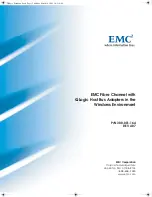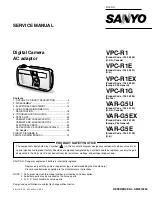
The messages that are output are as follows:
•
YK80nnZ
: These are messages that are output regardless of the specified message level.
However, note that some messages might be output only to
SYSTSPRT
or the console.
•
YK81nnZ
: These are messages with the highest level of importance.
•
YK82nnZ
: These are error messages.
•
YK83nnZ
: These are messages that report statuses.
•
YK84nnZ
: These are information messages.
ONACTIONERROR
={
SKIPONLY
|
STOP
|
EXIT
(return-code)} ~ <<
SKIPONLY
>>
Specifies the default error action to be used when no error action is specified in the
ACTION
parameter in the
YKMONCG
file.
SKIPONLY
Skips the cycle where an error occurred, but starts monitoring again from the next cycle.
STOP
Places the monitoring status of all copy groups specified in the
CGID
parameter to
INACTIVE
EXIT
(return-code) ~ <numeric characters> ((0 to 4095))
Stops BCM Monitor with the specified return code. HP recommends that you specify a value
other than 0, 4, 8, or 12 because these numbers are already used as BCM Monitor return
codes.
NOTE:
◦
Depending on the configuration of copy groups and the information specified in the
YKMONCG
file, the copy group status monitoring cycle might exceed the value specified
in the
CYCLETIME
parameter.
◦
Even if you choose to omit all the parameters, you still need to create an empty
YKMONOPT
file.
◦
You can decrease the amount of log data to be output by specifying
CONS
for the
SYSTSPRT
message level in the
MSGLEVEL
parameter. However, you might not be able
to identify the cause of an error if a problem occurs.
Example 1 Example
This example has the following operating environment:
◦
Copy group monitoring cycle time: 600 seconds
◦
WAITTIMEOUT
value: 60 minutes
◦
Message level output to
SYSTSPRT
:
STATUS
◦
Message level output to the console:
CONS
◦
ONACTIONERROR
value:
STOP
CYCLETIME=600
WAITTIMEOUT=60
MSGLEVEL=STATUS,CONS
ONACTIONERROR=STOP
YKMONCG File
This section describes the
YKMONCG
file.
364 BCM Monitor Parameter Files
Summary of Contents for P9000
Page 302: ...YKDEMO12 302 CLI Commands ...
















































